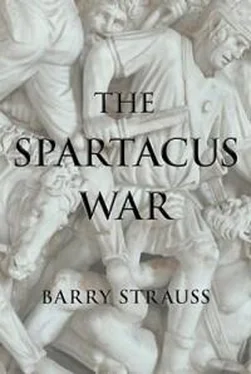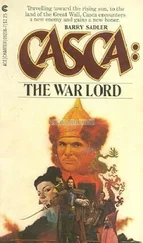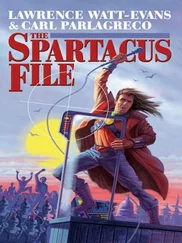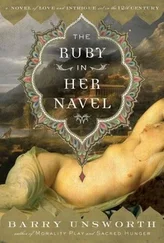Other valuable studies include M. Beard, The Roman Triumph (Cambridge, Mass.: Harvard University Press, 2007); J. Percival, The Roman Villa: An Historical Introduction (London: B.T. Batsford, 1976); J.S. Ackerman, The Villa: Form and Ideology of Country Houses (London: Thames and Hudson, 1990). C.V. Sutherland, The Romans in Spain, 217 BC - AD 117 (London: Methuen & Co., 1939); J.S. Richardson, The Romans in Spain Oxford: Blackwell Publishing, (1998); J.S. Richardson, Hispaniae: Spain and the Development of Roman Imperialism, 218-82 BC (Cambridge: Cambridge University Press, 1986); Wilfried Nippel, Public Order in Ancient Rome (Cambridge: Cambridge University Press, 1995).
Two accessible and readable recent introductions to the subject are Alison Futrell, The Roman Games (Oxford: Blackwell Publishing, 2006), and Fik Meijer, The Gladiators, History’s Most Dangerous Sport (New York: St Martin’s Press, 2003). S. Shadrake, The World of the Gladiator (Stroud: Tempus Publishing, 2005), offers reconstructions of gladiatorial combat, as does M. Junkelmann, Das Spiel mit dem Tod. So kampften Roms Gladiatoren (Mainz am Rhein: von Zabern, 2000); the latter is in German but the excellent photos speak for themselves. An English-language summary of some of Junkelmann’s ideas is found in M. Junkelmann, ‘Familia Gladiatoria: The Heroes of the Amphitheatre’, in Gladiators and Caesars: The Power of Spectacle in Ancient Rome, Eckart Koehne and Cornelia Ewigleben, eds., English version edited by R. Jackson (Berkeley: University of California Press, 2000), 31-74; see also M. Junkelmann, ‘Gladiatorial and Military Equipment and Fighting Technique: A Comparison’, Journal of Roman Military Equipment Studies 11 (2000): 113-17.
Karl Grossschmidt and Fabian Kanz, Gladiatoren in Ephesos: Tod am Nachmittag (Vienna: Osterreichisches Archaologisches Institut, 2002), summarizes important discoveries from a gladiators’ cemetery in Ephesus. Luciana Jacobelli, Gladiators at Pompeii (Los Angeles; John Paul Getty Museum, 2004), focuses on the important evidence of the first century AD but contains much of interest.
Other valuable books on gladiators and their place in Roman society and culture include D.G. Kyle, Spectacles of Death in Ancient Rome (London and New York: Routledge, 1998); T. Wiedemann, Emperors and Gladiators (London and New York: Routledge, 1992). K.E. Welch theorizes a Roman initiative behind Campania’s first stone amphitheatres: K.E. Welch, The Roman Amphitheatre: From Its Origins to the Colosseum (New York: Cambridge University Press, 2007), along with an article by the same author, ‘The Roman Arena in late-Republican Italy: A New Interpretation’, Journal of Roman Archaeology 7 (1994): 59- 80. Carlin A. Barton, The Sorrows of the Ancient Romans: The Gladiator and the Monster (Princeton: Princeton University Press, 1993), is speculative but often insightful. On gladiators in the armed gangs and bodyguards of the Late Republic, see Andrew Lintott, Violence in Republican Rome (Oxford: Oxford University Press, 1999), 83-5.
The best introduction to Roman slavery is K.R. Bradley, Slavery and Society at Rome (Cambridge: Cambridge University Press, 1994). See also his very thoughtful earlier study, Slaves and Masters in the Roman Empire: A Study in Social Control (Brussels: Lato mus, 1984). The little book by Michael Massey and Paul More-land, Slavery in Ancient Rome (London: Bristol Classical Press, 2001), is also a good start. T. Wiedemann, Greek and Roman Slavery (London: Routledge, 1981), is an excellent collection of documents. J.C. Dumont, Servus. Rome et l’Esclavage sous la République. Collection de l’École Française de Rome 103 (Rome: Ecole Française de Rome, Palais Farnèse, 1987), is fundamental on slavery in the Republic. Two important introductory studies are John Bodel, ‘Slave Labour and Roman Society’, in K. Bradley and P. Cartledge, eds., The Cambridge World History of Slavery. Vol. 1 (Cambridge: Cambridge University Press, 2008), and Willem Jongman, ‘Slavery and the Growth of Rome. The Transformation of Italy in the Second and First Centuries BCE’, in Catherine Edwards and Greg Woolf, eds., Rome the Cosmopolis (Cambridge: Cambridge University Press, 2003): 100-122.
M.I. Finley, Ancient Slavery and Modern Ideology (Princeton: Markus Wiener Publishers, 1998), is an essential discussion of the problem of slavery in the classical world. See also Joseph Vogt, Ancient Slavery and the Ideal of Man, trans. Thomas Wiedemann (Cambridge, Mass.: Harvard University Press, 1975); Keith Hopkins, Conquerors and Slaves (Cambridge: Cambridge University Press, 1978); Niall McKeown, The Invention of Ancient Slavery, Duckworth Classical Essays (London: Duckworth, 2007).
F.H. Thompson, The Archaeology of Greek and Roman Slavery (London: Duckworth, 2003) is valuable, but there remains much work to do on this subject. See Jane Webster, ‘Archaeologies of Slavery and Servitude: Bringing “New World” Perspectives to Roman Britain’, Journal of Roman Archaeology 18(1)(2005): 161-79.
On the Roman slave trade, see John Bodel, ‘Caveat Emptor: Towards a Study of Roman Slave-Traders’, Journal of Roman Archaeology. 18(2005): 181-95, and the debate represented by such works as W.V. Harris, ‘Demography, Geography and the Sources of Roman Slaves’, The Journal of Roman Studies 89 (1999): 62-75, and by W. Scheidel, ‘Quantifying the Sources of Slaves in the Early Roman Empire’, The Journal of Roman Studies 87 (1997): 156-69.
There is an excellent introduction to the subject in K.R. Bradley, Slavery and Rebellion in the Roman World, 140 BC - 70 BC. (Bloomington, Indiana: Indiana University Press, 1989). See also Theresa Urbainczyk, Slave Revolts in Antiquity (Stocksfield, England: Acumen, 2008). Although the emphasis is on Greece, not Rome, a seminal discussion is found in Paul Cartledge, ‘Rebels and Sambos in Classical Greece: A Comparative View’, in his Spartan Reflections (London: Duckworth, 2001), 127-52. Brent Shaw’s Spartacus and the Slave Wars (Boston, Mass.: Bedford/St Martin’s, 2001) offers translation of the major sources and a valuable introductory essay. Also useful is Zvi Yavetz, Slaves and Slavery in Ancient Rome (New Brunswick: Transaction Books, 1988). W. Hoben, Terminologische Studien zu den Sklavenerhebun gen der roemischen Republik (Wiesbaden, Germany: Steiner, 1978), represents an important study of the terminology of revolt used in the ancient sources. On the First Sicilian Slave War, see P. Green, ‘The First Sicilian Slave War’, Past and Present 20 (1961): 10-29, with objections by W.G.G. Forrest and T.C.W. Stinton, ‘The First Sicilian Slave War’, Past and Present 22 (1962): 87-93. On the Sicilian Revolts, see also G.P. Verbrugghe, ‘Sicily 210-70 BC Livy, Cicero and Diodorus’, Transactions and Proceedings of the American Philological Association 103 (1972): 535-59, and G.P. Verbrugghe, ‘Slave Rebellion or Sicily in Revolt?’, Kokalos 20 (1974): 46-60.
Thomas Grünewald has written a fascinating study in Bandits in the Roman Empire, Myth and Reality, trans. John Drinkwater (London and New York: Routledge, 2004).
Adrian Goldsworthy offers a concise introduction to the Roman way of war in Roman Warfare (New York: Smithsonian Books, 1999). His The Complete Roman Army (London and New York: Thames & Hudson, 2003) is a detailed overview of the legions and auxilia. For futher study, see his The Roman Army at War, 100 BC - AD 200 (Oxford: Clarendon Press, 1996). Peter Connolly, Greece and Rome at War (London: Greenhill Books, 2006), offers superb illustrations and sound history. C.M. Gilliver, The Roman Art of War (Charleston, SC: Tempus, 1999), offers thoughtful analysis. P. Sabin, Lost Battles: Reconstructing the Great Clashes of the Ancient World (London: Hambledon Continuum, 2008), combines wargaming and scholarship to reconstruct the ancient battlefield. See also Sabin’s important article, ‘The Face of Roman Battle’, The Journal of Roman Studies 90 (2000): 1-17.
Читать дальше












